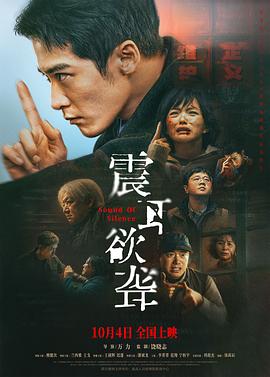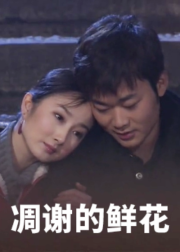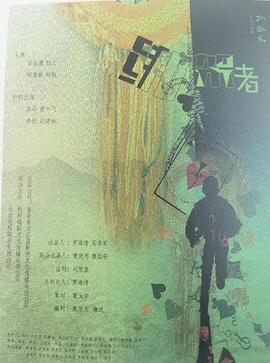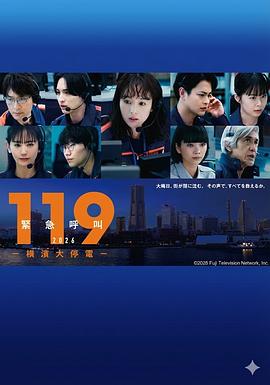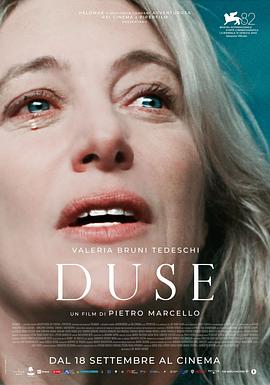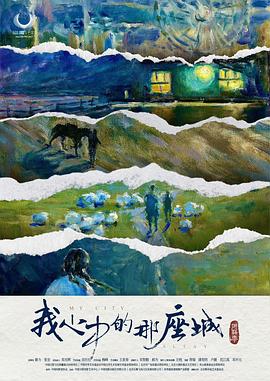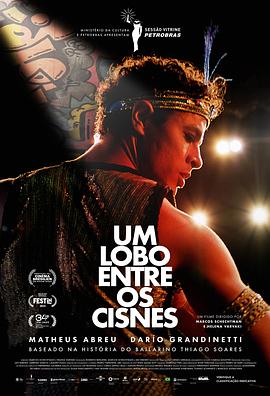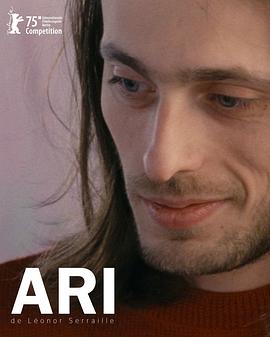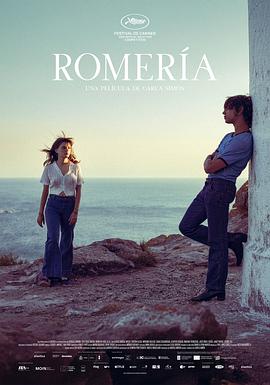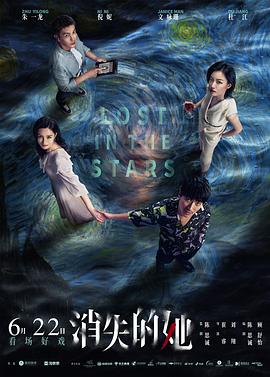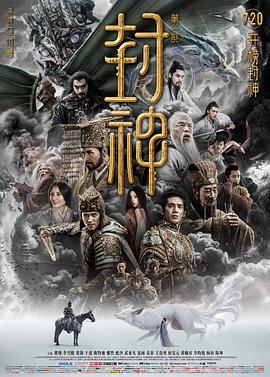- 正在播放《欧洲的某个地方》DVD中字 - 量子
- 提醒不要轻易相信视频中的任何广告,谨防上当受骗
- 技巧如遇视频无法播放或加载速度慢,可尝试切换播放节点或者切换解析
- 收藏全网影视网址:dy.aiaide.cc / dy.aiaide.cc ,记得收藏哟~
剧情:
Somewhere in the remote region, the war ends. In the midst of ruined cities and houses in the streets, in rural hamlets, everywhere where people still live, are children who have lost their homes and parents. Abandoned, hungry, and in rags, defenseless and humiliated, they wander through the world. Hunger drives them. Little streams of orphans merge into a river which rushes forward and submerges everything in its path. The children do not know any feeling; they know only the world of their enemies. They fight, steal, struggle for a mouthful of food, and violence is merely a means to get it. A gang led by Cahoun finds a refuge in an abandoned castle and encounters an old composer who has voluntarily retired into solitude from a world of hatred, treason, and crime. How can they find a common ground, how can they become mutual friends? The castle becomes their hiding place but possibly it will also be their first home which they may organize and must defend. But even for this, the price will be very high. To this simple story, the journalist, writer, poet, scriptwriter, movie director, and film theoretician Béla Balázs applied many years of experience. He and the director Géza Radványi created a work which opened a new postwar chapter in Hungarian film. Surprisingly, this film has not lost any of its impact over the years, especially on a profound philosophical level. That is to say, it is not merely a movie about war; it is not important in what location and in what period of time it takes place. It is a story outside of time about the joyless fate of children who pay dearly for the cruel war games of adults. At the time it was premiered, the movie was enthusiastically received by the critics. The main roles were taken by streetwise boys of a children's group who created their roles improvisationally in close contact with a few professional actors, and in the children's acting their own fresh experience of war's turmoil appears to be reflected. At the same time, their performance fits admirably into the mosaic of a very complex movie language. Balázs's influence revealed itself, above all, in the introductory sequences: an air raid on an amusement park, seen in a montage of dramatic situations evoking the last spasms of war, where, undoubtedly, we discern the influence of classical Soviet cinematography. Shooting, the boy's escape, the locomotive's wheels, the shadows of soldiers with submachine guns, the sound of a whistle—the images are linked together in abrupt sequences in which varying shots and expressive sharp sounds are emphasized. A perfectly planned screenplay avoided all elements of sentimentality, time-worn stereotypes of wronged children, romanticism and cheap simplification. The authors succeeded in bridging the perilous dramatic abyss of the metamorphosis of a children's community. Their telling of the story (the scene of pillaging, the assault on the castle, etc) independently introduced some neorealist elements which, at that time, were being propagated in Italy by De Sica, Rossellini, and other film artists. The rebukes of contemporary critics, who called attention to "formalism for its own sake" have been forgotten. The masterly art of cameraman Barnabás Hegyi gives vitality to the poetic images. His angle shots of the children, his composition of scenes in the castle interior, are a living document of the times, and underline the atmosphere and the characters of the protagonists. The success of the picture was also enhanced by the musical art of composer Dénes Buday who, in tense situations, inserted the theme of the Marseilaise into the movie's structure, as a motive of community unification, as an expression of friendship and the possibility of understanding. Valahol Europaban is the first significant postwar Hungarian film. It originated in a relaxed atmosphere, replete with joy and euphoria, and it includes these elements in order to demonstrate the strength of humanism, tolerance, and friendship. It represents a general condemnation of war anywhere in the world, in any form.
收起
相关影片
2024
剧情片
其它
玛丽安娜·芳塔娜 乔瓦尼·安扎尔多 Demetra Avincola Dalila De Marco 洛伦索·吉埃利 Eliana Lupo Cristiana Raggi Nicola Rignanese
影片在舒缓的节奏下呈现了一位女性重塑自我之路,故事主人公安娜为她十几岁时犯下的谋杀罪已经服刑15年,虽然服刑期满,但周围异样的眼神意味着 对她的审判仍未结束。安娜离家远行来到一个小镇并找到工作,准备开
HD
2025
剧情片
大陆
TC
2008
剧情片
大陆
HD
2011
剧情片
大陆
HD
2025
剧情片
大陆
HD
2026
剧情片
日本
HD
2025
剧情片
其它
瓦莱丽亚·布鲁尼·泰德斯基 诺米·梅兰特 文森佐·内莫拉托 范尼·伍罗奇纳 福斯托·鲁索·阿莱西 马切罗·马扎雷拉 文森佐·皮罗塔 费德里科·帕西菲奇 选填 Iacopo Fanelli Gaja Masciale 文琴察·莫迪卡 米莫·博雷利 Edoardo Sorgente 萨维诺·帕帕雷拉 Vincenzo Iantorno
A portrait of actress Eleonora Duse.
HD
2025
剧情片
其它
HD
2025
剧情片
日本
HD
2025
剧情片
日本
HD
2025
剧情片
大陆
HD
2025
剧情片
日本
HD
2025
剧情片
法国
安德拉尼克·马奈 帕斯卡尔·雷内里克 Théo Delezenne Ryad Ferrad 伊娃·拉利耶 Lomane de Dietrich Mikael Don Giancarli 克莱芒丝·库隆 Fabio Caron Audrey Bonnet 克莱尔·博德森 苏菲‧卡达尼 Alphonso Scavo Immanuelle Shékina Isaure Bony Agoua Melvil de Waegenaire Tom Menanteau Alexandre Auvergne Serena
阿里曾是一位年轻的教师,他辞去了工作,却被父亲无情地赶出了家门。在感到迷茫和孤独之际,他重新找到了旧友,这一举动触发了他一段深刻的自我探索之旅。
HD
2025
剧情片
西班牙
HD
2024
剧情片
其它
丽莎·洛文·孔斯利 伊内斯·霍伊塞特·艾瑟森 奥古斯特·维特根斯坦 马克·诺布尔 瓦特尼·布瑞恩 埃里克·黑维尔 马格努斯·杜格达勒 弗洛·法格利 马克斯·罗茨利 拉尔斯·贝尔格 埃斯彭·佩特鲁斯·安德森·莱尔瓦格 佩尔·恰尔斯塔德 埃里克·马德森 雅各布·马努姆·特鲁尔森 菲利普·海尔加 克里斯蒂安·哈尔肯 英维尔·霍尔特·拜格德内斯 乌尔里克·威廉·格雷斯利 本雅明·米勒 迈克尔·谢尔福德
来自吕坎的年轻学徒贡纳尔·索恩斯特比在纳粹德国入侵的当天决定进行抵抗,后来成为“奥斯陆帮”的领导者,执行了无数大胆的破坏行动,使他成为挪威最伟大的战争英雄。
HD
正在热播
更多
2023
国产剧
大陆
热播
更新至第33集
2023
国产剧
大陆
热播
更新至第17集
2023
国产剧
大陆
热播
更新至第21集
2023
国产剧
大陆
热播
更新至第28集
2023
国产剧
大陆
热播
更新至第14集
2023
国产剧
大陆
独家推荐
更新至第13集
2022
剧情片
大陆
独家推荐
HD
2023
科幻片
美国
独家推荐
HD
2023
动作片
大陆
独家推荐
费翔 李雪健 黄渤 于适 陈牧驰 娜然 此沙 武亚凡 夏雨 袁泉 王洛勇 侯雯元 黄曦彦 李昀锐 杨玏 陈坤 许还山 高曙光 冯绍峰 杨立新 丁勇岱 高冬平 徐冲 韩鹏翼 单敬尧 吴汉坤 百力嘎 刘乐 许翔 刘涵 徐菲 孙睿 耿业庭 金志浩 屈愉超 黄涛 樊汶东 姜宝成 阿仁 米铁增 僧格仁钦 马文忠 宁文彤 张经伟 杨添皓 李泽宇 夏晨旭 宋宁峰 俞颖 吴超 杨大鹏 赵磊 张振煊 宋渡宇 文波 图门巴雅尔 慕晓博 春晓 其勒木格 张雪菡 钱波 巴雅尔图 吴兴国 那尔那茜 刘潮 张艺泷 孙煌辰 艾力江·
商王殷寿(费翔 饰)勾结狐妖妲己(娜然 饰),暴虐无道,引发天谴。昆仑仙人姜子牙(黄渤 饰)携“封神榜”下山,寻找天下共主,以救苍生。西伯侯之子姬发(于适 饰)逐渐发现殷寿的本来面目,反出朝歌。各
HD
2023
动漫
大陆
独家推荐
HD
2023
国产剧
大陆
热播
更新至第27集


